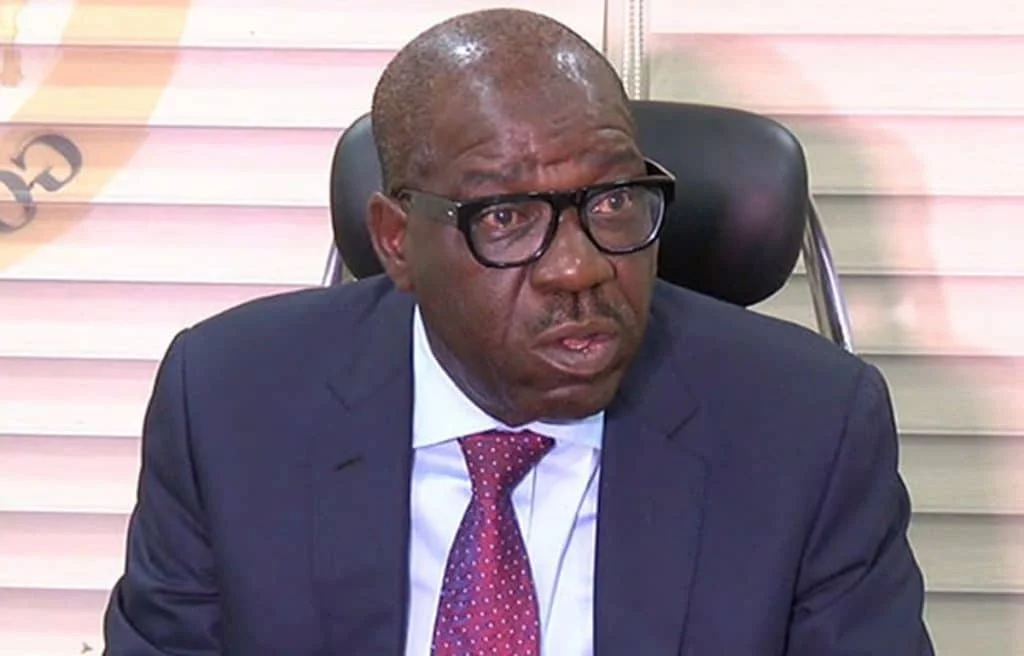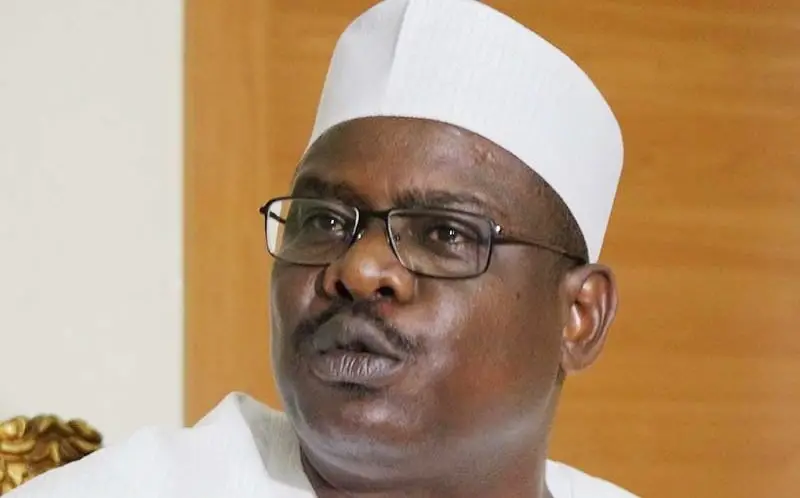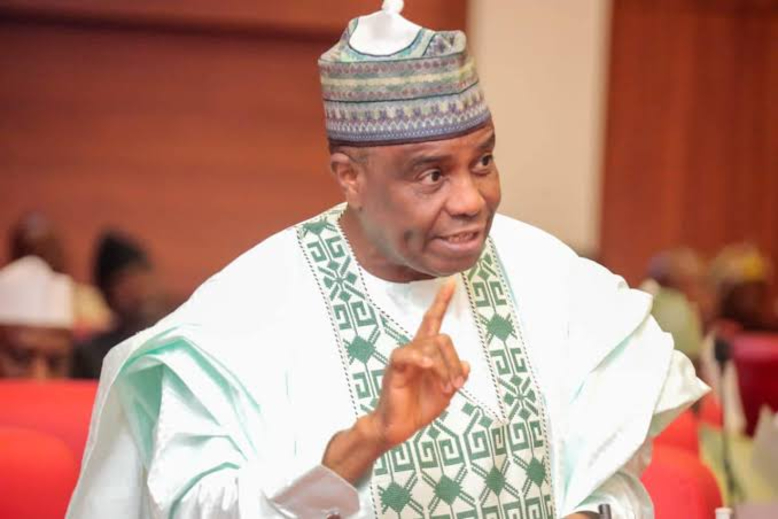News
Tinubu Sacks NAHCON Boss, Makes Replacement

President Bola Tinubu on Monday wielded the big stick, sacking the embattled Executive Chairman of the National Hajj Commission of Nigeria, NAHCON, Jalal Arabi and appointing Professor Abdullahi Saleh Usman as his replacement.
A statement by Ajuri Ngelale, Special Adviser on Media and Publicity to the President, announced the appointment shortly after Tinubu departed for France.
It noted that Professor Usman is a renowned scholar with qualifications from two Islamic centres of excellence—the University of Madinah and Peshawar University, Pakistan.
He is also well-grounded in Hajj operations, having served as the Chairman of the Kano State Pilgrims Board and successfully superintended the operations of the largest quota of state pilgrims in the country.
READ ALSO: Tinubu Departs For France Aboard New Presidential Jet
The appointment is subject to confirmation by the Senate.
Ajuri said the President expects the new Chairman of NAHCON to discharge his duties with integrity, transparency, and utmost fidelity to the nation.
Recall that trouble started for Arabi when anti-graft agency, EFCC, invited him to answer petitions filed against him, which led to his detention.
The anti-corruption agency was alleged to have also received petitions from some concerned staff members of NAHCON.
The agency was reported to have uncovered a multi-million-dollar fraud allegedly perpetrated by top officials of NAHCON under Arabi.
READ ALSO: Fear In Akwa Ibom Community As Police Arrest Villagers Over Death In Prayer House
The anti-graft agency’s discoveries came from an extensive investigation into the suspicious use of funds allocated to NAHCON for Hajj operations over the years.
It revealed that the EFCC investigation dates back to 2022 after an operative of the anti-graft agency, who served on the NAHCON Central Security Committee that year, hinted at several infractions in the use of the Hajj commission’s funds.
Some of the irregularities allegedly highlighted in an intelligence report submitted by the EFCC after the stint on the NAHCON security committee include the payment of estacodes to staff for a study tour that never took place and payment for a consultancy service that was not rendered, among others.
Subsequently, EFCC said it wrote to NAHCON, highlighting lapses in its administrative process and providing necessary advice while also investigating the lead its operatives provided.
READ ALSO: Dangote Group Spokesperson, Roseline Okere Dies
The intelligence report alleged “a multimillion-dollar case of conspiracy, misappropriation and mismanagement of pilgrims funds paid for the 2022 Hajj operation” by top officials of NAHCON.
It was recently reported that Mr Arabi had been detained by the anti-graft agency in Abuja. This was after he was grilled and released on bail on July 29.
While undergoing grilling, some top officials of the commission were also arrested by the Independent Corrupt Practices and Other Related Offences Commission, ICPC, over alleged mismanagement or diversion of Hajj funds.
EFCC had reportedly uncovered that estacodes were paid to some NAHCON staff members for a study tour to Indonesia that never took place.
Although the agency made efforts to recover the funds, it kept mum on the actual amount involved.
News
Ex-Edo Gov Obaseki Reacts As His Cousin Is Beaten, Stripped

The immediate past governor of Edo State, Godwin Obaseki, has reacted to the attack on Don Pedro Obaseki, the Chief Executive Officer of Osamudia Farms.
Don Pedro Obaseki, a cousin to the immediate past governor was attacked at Uwa Primary School where he went to play football.
In a viral video, Pedro Obaseki is seen kneeling at the Oba of Benin Palace gate, before he was dragged into the palace where he was asked to crawl before some chief walked up to the scene and rescued him.
Reacting, the ex-Edo governor described the act as a “grave violation of fundamental human rights and a reckless disregard for the rule of law.”
READ ALSO: Obaseki Beaten, Stripped In Edo
Obaseki, said: “I call on security agencies to immediately investigate this matter thoroughly and transparently, identify those responsible for this barbaric act and ensure they are held accountable in accordance with the law.
“A situation where thugs and non-state actors appear to freely take the law into their own hands on behalf of high-profile individuals and those in positions of authority can only result in one outcome, a degeneration into a state of anarchy, which will do no one no good.”
He further charged, “I urge human rights organizations, civil society groups, and all well-meaning Nigerians to lend their voices and speak out firmly against this injustice and gross violation of human rights.”
News
New Tax Laws: Suspend January 2026 Implementation — Senator Ndume Tells Tinubu

Former Senate Leader, Ali Ndume has appealed to President Bola Ahmed Tinubu to suspend the January 1, 2026, implementation of the country’s new tax laws amid growing controversy.
The federal lawmaker made the appeal in a statement he issued on Wednesday in Abuja.
This comes as the Nigerian Bar Association demanded the suspension of the implementation.
Recall that a member of the House of Representatives, Abdussamad Dasuki, had last week called the Parliament’s attention to alleged alteration to the tax laws.
READ ALSO:FIRS Confirms NIN As Tax ID
Chairman of the Presidential Fiscal Policy and Tax Reforms Committee, Taiwo Oyedele, in an interview on Arise Television on Wednesday, called for calm over claims of alterations in tax laws and urged Nigerians to allow lawmakers to complete their investigation before drawing conclusions.
Speaking on the ongoing controversy about the tax laws, Ndume noted that proceeding with the implementation without getting to the root of the alleged forgery will create a legitimacy challenge for the tax laws.
His statement read, “With the controversy surrounding it, the President should constitute a team to verify the veracity of the claim and act accordingly.
“As the responsive leader that he has always been, he should look at it to find out if the copy that was signed and the claim of alterations are genuine so that he will do the needful to bring the controversy to rest.
READ ALSO:US Threatens To Sanction Countries That Vote For Shipping Carbon Tax
“If not, the controversy will continue.” That is to say, the tax law will not be implemented, because you can’t build on nothing.
“So, Mr. President should suspend the implementation until the issues are resolved because so many civil society organizations, the Arewa Community, and the Nigerian Bar Association are saying that he should withdraw the tax law and investigate the allegation of forgery.”
“Therefore, Mr President should get to the root of the allegation of forgery. The small committee that will be set up should look into it while the House of Representatives does its own.”
News
Tambuwal Engages Security Agencies As US Airstrikes Hit Own LG In Sokoto

Senator Aminu Waziri Tambuwal, representing Sokoto South, has called on residents of Sokoto State to remain calm following reports of United States airstrikes targeting ISIS-linked terrorists on Christmas Day.
In a statement posted on his personal X account, the former Sokoto State governor said he was aware of reports concerning the airstrikes, which marked a direct US military action in Nigeria based on intelligence about ISWAP threats, and urged citizens to remain law-abiding while authorities clarify the situation.
“I have noted the reports concerning an airstrike carried out as part of ongoing counterterrorism efforts through cooperation between the federal government of Nigeria and the United States,” Tambuwal said. “I urge our communities to remain calm and law abiding as relevant authorities clarify the circumstances surrounding the operation.”
READ ALSO:US Dept Of War Shares Video Of Air Strikes In Nigeria
Tambuwal assured constituents that he was engaging with relevant security agencies to obtain full details of the operation and to ensure that necessary things were in place to protect civilians.
“I wish to assure the people of Sokoto South that I am in active talks with relevant security authorities to obtain full details and ensure that all necessary safeguards are upheld,” he added.
The senator emphasised that counterterrorism operations were aimed strictly at criminal and terrorist elements threatening public safety, not innocent civilians who are often victims of insecurity. He stressed that the protection of civilian lives must remain central to all legitimate security actions.
He further called on community leaders, traditional institutions and residents to work closely with security agencies by sharing credible intelligence and resisting misinformation capable of causing fear or heightening tension.

 News4 days ago
News4 days agoFULL LIST: Churches That Don’t Celebrate Christmas

 News4 days ago
News4 days agoJUST IN: Kano Lawmaker, Sarki Aliyu Daneji, Dies Hours After Colleague’s Passing

 Headline3 days ago
Headline3 days agoJUST IN: US Forces Bomb Terrorists Camps In Nigeria

 News3 days ago
News3 days agoOkpebholo Slams ₦25bn Libel Suit On Edo PDP Chairman

 Headline3 days ago
Headline3 days agoUS Dept Of War Shares Video Of Air Strikes In Nigeria

 Entertainment4 days ago
Entertainment4 days agoAFCON 2025: Davido Wins $96,000 After Super Eagles Beat Tanzania

 News5 days ago
News5 days agoOPINION: The Day Friendship Died

 News4 days ago
News4 days agoSheikh Gummi Sues Two Over Alleged False Facebook Publication

 News4 days ago
News4 days ago7 Health Risks Of Owning A Cat

 Headline4 days ago
Headline4 days agoCoup: Guinea-Bissau Junta Releases Six Held Opposition Politicians






























